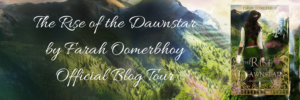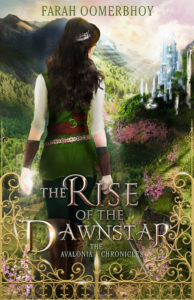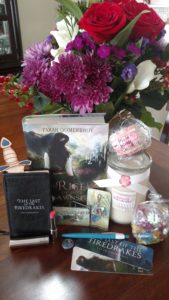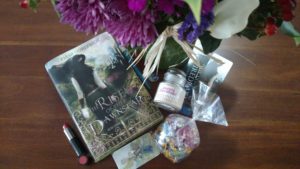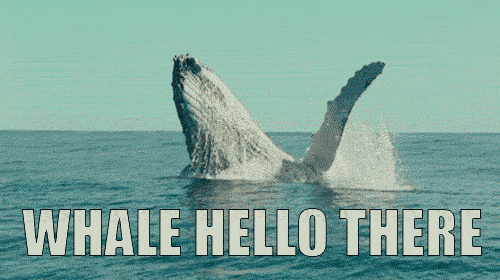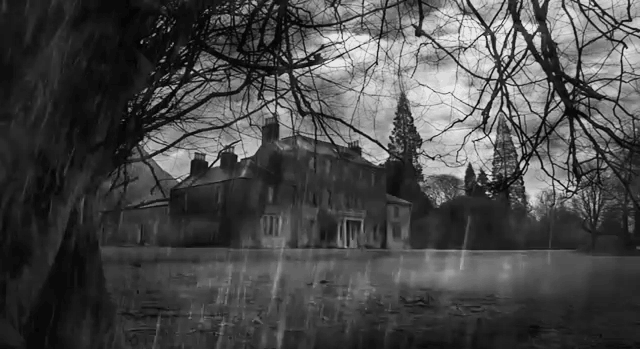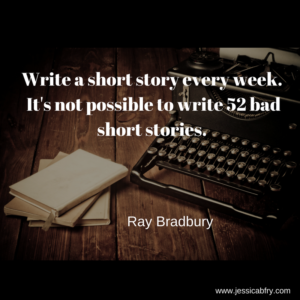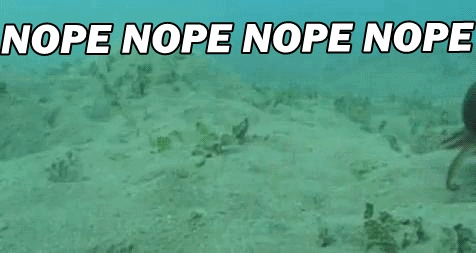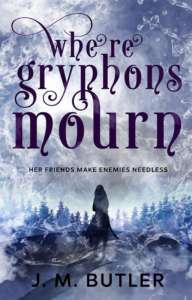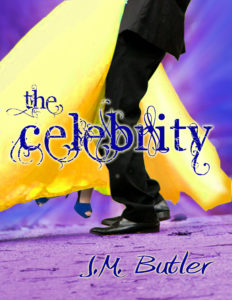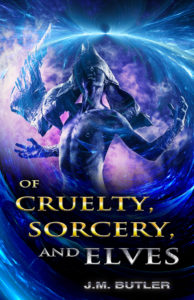So now let’s talk about what you can do to protect yourselves when posting your stories online.
First, a key distinction (and I only make this again because in conversations, some keep trying to sidetrack the conversation and wrongly conflate the terms). All authors have to deal with piracy at some point. Piracy is where they take your story with your name attached and upload it to a site. It may be a mirror site, it may be a separate site. They tend to target well-known authors because that draws the readers to their site.
Plagiarism and theft is when they take your words and your story and take your name off. They may change some small details, but the vast majority of the story is the same. These individuals typically focus on unknown and smaller authors because it’s more likely that they can get away with it.
Authors never benefit from having their works plagiarized. There may be some who will argue that piracy is not much of a detriment to authors. But the reason that it is difference is because the author’s name remains on the manuscript. They can still potentially gain new fans. It is not a great argument as authors should maintain control of the manner and method of their distribution. In fact, it is deeply flawed. But victims of plagiarism/theft do not receive even this.
Understand What Most Thieves Want
For the most part, thieves want an easy buck. They are not the same as pirates. Pirates typically make their revenue through ads and phishing schemes and viruses on the sites. Thieves/plagiarists typically make their money off the royalties. Because this is hit or miss, they are inclined to do a lot all at once.
In most of my dealings with thieves, they grab multiple stories and do mass uploads or they stuff a single book with stolen items to maximize per page revenue payments. Generally the stories bring in small amounts that then accumulate over time. These thieves are not in it for the big money. Most don’t want to be noticed. It’s about accumulation. (Also in my dealings, most of these thieves are in countries where a US dollar will go a lot farther.)
Determine if You Can Risk Theft
When you post online, you run the risk that someone may steal it. I do not say this to absolve any of the writing platforms from their duty to their writers. It is simply something to bear in mind. Do not buy into any of the promises that they give you that they are different or that they will protect you. And even the best security may not keep out some thieves. (I do expect a good platform to keep it from being as easy as the click of a button, but I won’t move into that rant right now.)
If your project is such that you can absolutely not risk it being stolen, don’t put it online. (And let me be clear that there is nothing wrong with that. It doesn’t mean that you are cowardly or somehow stuck in the dark ages. It is recognizing the nature of each writing project, and what works for one may not work for another.)
You need to make sure that you take time to search for your stories and check to see if you have been robbed. Or you need to not care if someone takes your story without giving you attribution.
Don’t Post the Full Story in One Place
Remember that most thieves want a quick and easy buck. So if a story is explicitly declared as not finished, it is less likely to be targeted. (Please note that by finishing, I don’t mean editing. I mean it literally does not have an ending. Thieves don’t seem to care much about grammar.)
The other benefit to not posting the full story is that if someone steals it up and uploads it, the ending will be missing. You will have the ending. That may not be prima facie evidence, but it is quite solid, nearing Big Eyes territory.
Now again, this is not foolproof. Some intrepid thieves may be willing to add an ending. In the Rachel Nunes case, the thief added some sex scenes.
So what about your readers? What if they want the ending and you want to share it with them?
Well, you’ve got a couple options here.
First, if you do choose to not post a full story, make sure to note this at the beginning, particularly if you are on a site like Tablo or Inkitt or Wattpad where serials are common. This way you can temper your readers’ expectations. You could choose to not publish the ending at all until formal publication. Readers can then purchase your story. But please give your readers notice. They want to support you, and they need to be fully informed as well.
You can also time out your upload of the chapters to coincide with the release of your book. This way the final chapters go up online after the book is formally published and registered with the copyright.
If you don’t care for either of those options or perhaps don’t want to pursue formal publication, the other option is to upload the final chapters elsewhere. Say in a different book or on a different profile or on a different platform altogether. Now, please note that this is not much of a protection. It relies essentially on the speed and ease with which thieves want to take your story. It throws up a roadblock. If they do some research and find it, it is simple enough to join the files together.
Register the Copyright
Now personally I don’t recommend doing this before the work is done or filing for preregistration (also there are some other restrictions for preregistration.) However, it is your call, and you will need to consider your situation and possibly talk to an attorney. (Yes, I am an attorney, but I am not giving specific advice here.)
Also please note that I will be doing a followup post on how to do an Unpublished Collection through the Copyright Office, but that will take a little more research to confirm some details.
If your country allows for this like the US, it’s just a much simpler way to prove ownership. In the US, it costs about $30 – $40 ($35 for me the last time I paid). And it is relatively simple to go through.
Also foreigners can register their copyright in the US. You can check out what the Copyright Office has to say on this and limitations. But for my readers who have asked most about UK residents specifically, yes, you can register with the US Copyright Office.
To register in the United States, you can go through here.
Note that their completion times vary significantly, but if you do everything properly, the date of copyright is the date that the application is received in full.
Officially Publish Before Posting
Now, let’s get something straight…officially publishing does not mean you are golden in terms of copyright registration. Most traditional publishers, including small, will register your copyright for you. If you are indie, you will need to register your copyright (and I do encourage this even though copyright belongs to you once you create; copyright registration opens additional options and creates prima facie evidence). But even if all you have is the finished book, it is a little more persuasive than a time stamped web page if it comes first in time because you also have sales and release data, usually from more than one site, which leads to the next point.
When you publish, go wide. Again time stamps and dates like this are not foolproof or guaranteed, but they help to build a stronger case. It also makes it more likely that your story will be seen and known.
Utilize a Copyright Registration/Index Service
Copyright registration services are something of a misnomer in that they are not exactly copyright registration unless they are affiliated with the government (and even then depending on your country, you’ve got to doublecheck). It’s actually more accurate to refer to these as indexes, which is what some call themselves. (It depends on your country what the most common terminology is, but an official service will have a .gov ending.)
Essentially for a fee you submit your work to them, and they receive it, date it, and secure it. They can then be used as a business record of note and provide data. It is harder to fake this, and so it is generally more persuasive than a website time stamp as those can be easily faked.
Now bear in mind that some of these may be more expensive than the actual copyright registration service. It also does not create prima facie evidence. But it is not worthless.
Full disclosure though, I have never used one of these services.
Be Precise, Unique, Connected, and Descriptive
In looking over books that have been stolen and uploaded under another author’s name, I have noticed that stories that are more generic tend to be more common targets. To date, most of the targets I have spoken with wrote romance, contemporary, or thrillers. I suspect that this is because the settings tend to be more generic and the general arena quite heavily populated, making it easy for them to blend in.
So add in unusual descriptions and features that are often present in your other stories. In other words, develop a vivid voice, which is great for your writing anyway.
Now this is not always the case. In the case of my Tundra Queen, it was a high fantasy science fiction story with a lot of elements that, even if the thief had changed the names (she did not), it would have been easy enough to prove my ownership. I also failed to note that the story was part of a larger series (another factor, other than the copyright that worked in my defense).
Standalones also seem more likely to be targeted. In most of the cases I’ve dealt with, the story stolen is on its lonesome. Not part of an interconnected world. I would recommend prominently advertising that it is part of an interconnected world if it is (and that will also be good for your readers).
If you have parts of the interconnected world/series officially published, it makes it that much easier to prove that the other one is part of your catalogue and not the thieves. Particularly if you have registered the copyright or taken other steps to secure your property.
Regularly Check For Thieves/Plagiarists
You need to make it a regular part of your routine to check for your stories if it bothers you that someone might take them without giving attribution and you want to stop them.
Now admittedly, this is sometimes hard to do. Particularly when you have a lot of stories up. But take some time to set up Google Alerts. Also take the time to search paragraphs from your story. Personally I take certain key passages with descriptive language. I don’t focus as much on names because names are easily changed. Characters’ physical descriptions and setting descriptions as well as unique bits of dialogue are some of my favorites for this.
Go through Amazon and check for your titles. Bear in mind that the word search that works for most websites will not work on Amazon, Barnes & Noble, Google Books, etc. You’ll want to check for title matches. It isn’t often that thieves are foolish enough to use the same title, but sometimes they do. Also check in keywords. Focus on elements that are not likely to be changed such as the character’s occupation, setting if it is essential and not easily changed, and the core conflict. One friend found her story on Barnes and Noble by searching for New Orleans nurse high school reunion romance.
Read in your genre. Most of the time, thieves publish their stolen goods in the same primary genre because that is what the story is set for and it is hard to change that much.
Prioritize checking for stand alones and books that are the first in their series and from time to time check the others.
Note: Have your author friends’ backs. If you see something suspicious, let them know. Don’t attack the person you think might be a thief. Your friend will know better if it is actual theft.
Make Your Story Tumblr Style
Tumblr, as you know, is not a text based site but rather employs images and blocks of color with text in them. Photographs of words are harder to scab. Now, people can still right click and save these, but it would take more effort to get the text into a publishable form.
If you really want to mess with thieves, then you can do a mixture of text and text on images. This is a little bit of a pain to do, and I am not inclined to do it myself. But who knows? If it gets much worse, I might give it a try.
If you need options for how to do it, you can either use a service like Canva to create images with the story. Or you could upload it to a story platform site, take a screenshot, and then upload it. Just make sure that if you do this that a single image does not hold the entirety of the story.
Do Not Leave Stories Up For an Indeterminate Amount of Time Without Protection
Now this is playing more against the law of averages and the odds of your work being stolen rather than actual protection. However, if you leave a story up without protection and don’t check up on it, the longer it is out there, the more you risk theft.
A thief just has to come by at the right time and the right place to rob you, but if you never lock your door, you make it easier.
Personally I like the solution of putting up stories for a brief time and then removing them. You may want to inform your readers that you will be doing this. The appropriate time frame varies based on how comfortable you feel.
It will also likely depend on what you have experienced. Right now I am more cautious because I have been targeted by thieves. I am on some of their radar (hopefully someone not to tangle with).
Stay Open to New Ideas And Know That What Works May Change
There are likely lots of other ways to inhibit thieves. We just have to come up with them. The image idea was one I got after a conversation with a site that allows people to download stories without the author’s permission. The developer mentioned that currently there was no way to download images along with stories but that wasn’t a problem because the images weren’t important. For me, that was a lightbulb moment.
Again all this might change. Tech and coding alike change regularly, which is why we rely on the experts to help protect us, and it is important to keep up with it as much as you can.
Remain Involved in the Writing Community
Some writing platforms will not let you know when the game changes and your work becomes vulnerable. Regardless of how much they claim to care about their users, their ultimate concern is to protect themselves. Do not believe otherwise.
With that said, being in touch with other writers is often your quickest route to knowing what’s going on even if the platform does let you know what is happening. It also goes back to the having one another’s back, and if someone sees your story stolen or if you see someone else’s stolen, you can pass that information on along.
Additionally, you can hopefully keep up with new techniques and new ideas to protect your work.
The Revenge Thief
Okay, there is one other type of thief that needs to be addressed here. This is the thief who is out to ruin you personally. This has nothing to do with the bottom line or business. It is personal. I have run into a few cases of this. This occurs when an individual is determined to target you and destroy your stories.
Now for the most part, this individual isn’t going to come out of the blue. They will harass you and do other things to make you as miserable as you can. Stealing your stories is only one aspect of that. In this case, you need to document everything and look into other charges that can be filed other than plagiarism. You’ll want to check into your state or nation’s laws if there is cyberharassment or intentional infliction of emotional distress or something similar that you can pursue. These may be easier causes of action to prove with greater available damages.
In this case, you will generally know who your thief is. You need to save everything and get legal counsel from someone who handles this sort of case as soon as you can. Evidence, particularly online evidence, can be difficult to obtain, so you will need professional counsel. Until then do not exacerbate the situation or make threats. Just collect the evidence and go get help.
Concluding Thoughts
Thieves are a reality of writing and publishing now, and there are no benefits to the authors. We have to be prepared.
When you post online, make sure you post informed. If you find your work stolen, take action. You don’t have to hide your work away. You just have to be vigilant.
